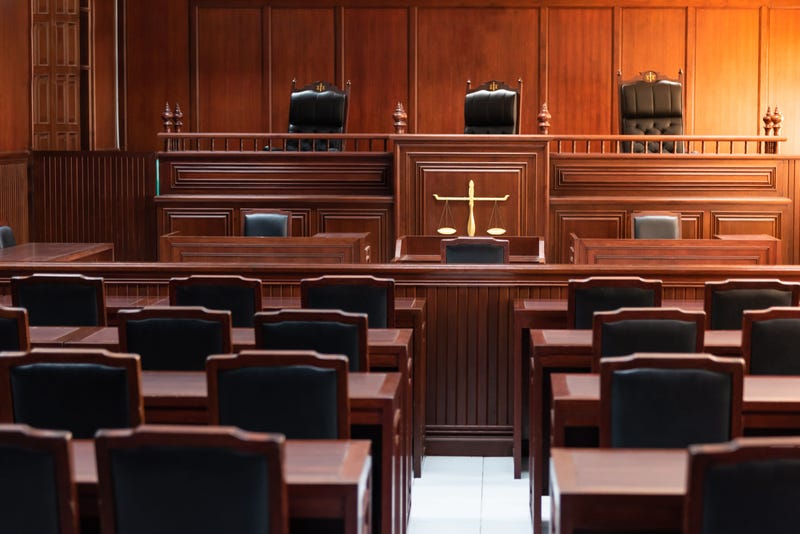
California courts are going back into session with the large backlog of cases on the docket, but some judges say there are still many barriers to holding trials.
San Mateo County Superior Court Presiding Judge Jonathan Karesh says one big factor is simply not being able to physically select jurors.
“Because of social distancing requirements we’re only able to fit a certain number of prospective jurors into a courtroom. Normally when I have a jury trial I’ll bring in 70 jurors, prospective, and jury selection proceeds rather rapidly,” said Judge Karesh. “Now even in our biggest courtroom in Redwood City we can fit maybe 17 jurors.”
And with the courthouses already facing a major backlog in cases after being shutdown for months, that can slow things down.
“There are just a very limited number of courtrooms that we’re able to have jury selection in. So essentially we’re limited to having probably two trials have jury selection at one time,” he said.
That is why the county asked the state Supreme Court to extend its moratorium on California’s speedy trial law for another 30 days. The law requires felony charges to be dropped if a defendant is not tried within 60 days of their arraignment.
And the courts are working to find ways to speed up the process in the meantime.
“We have to get creative with ways to have jury selection,” Judge Karesh said. “For example we’re gonna try to use the jury assembly room as a spillover room for prospective jurors, who we hope will be able to watch jury selection via Zoom.”
The Supreme Court granted the county’s request late Thursday, extending the moratorium through July 15.
